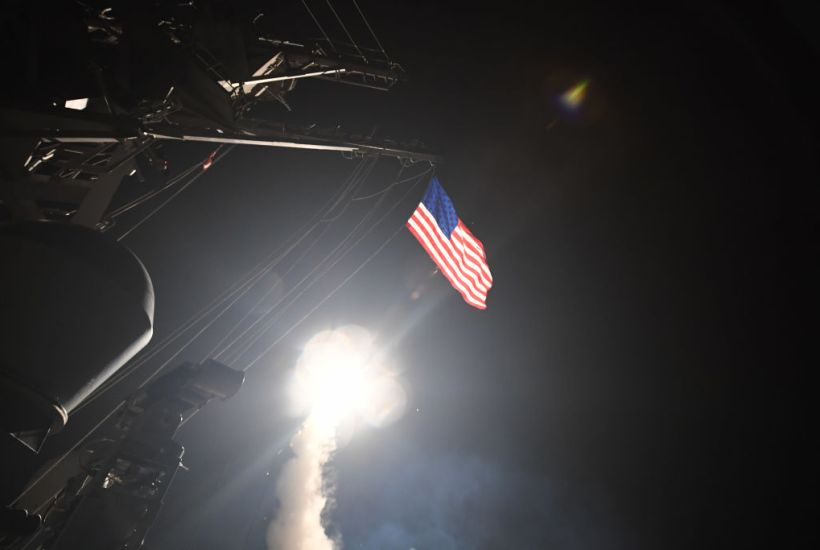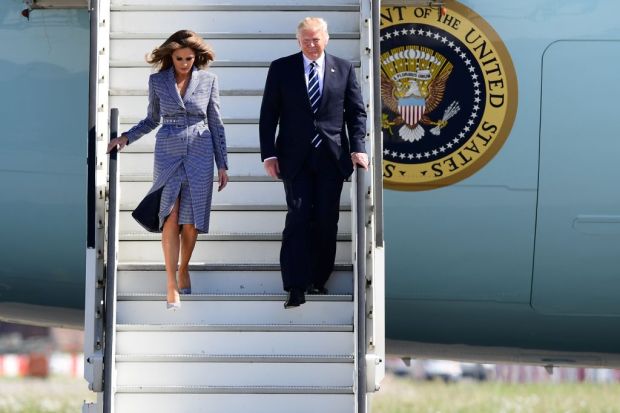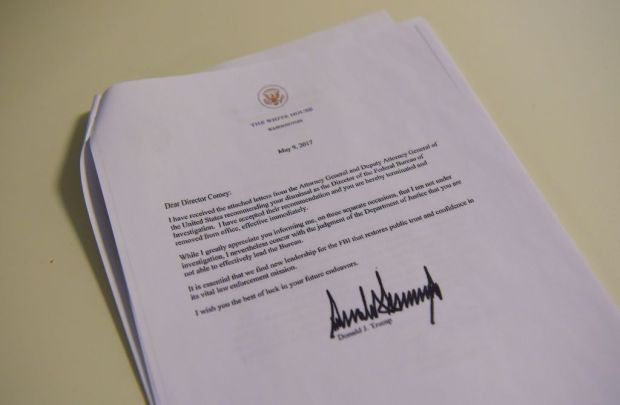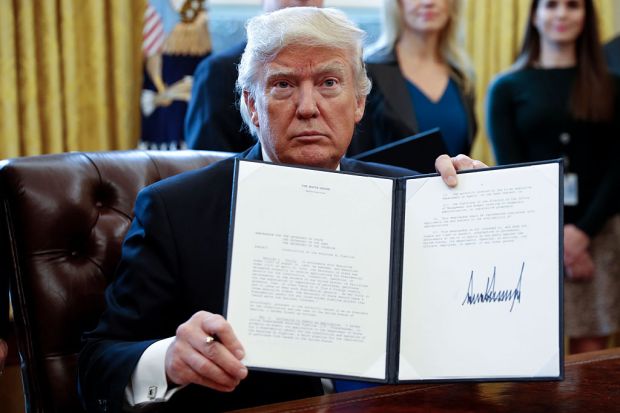BOSTON, UNITED STATES — Donald Trump’s strike on a Syrian airbase marks the United States’ first direct act of aggression against the Assad government. It’s a huge reversal of his rapprochement with Syria and Russia., going against everything we’ve come to expect of the President’s foreign policy thinking since he entered the 2016 primary.
Just days ago, Nikki Haley – Trump’s UN ambassador and the most senior hawk in his administration – told reporters: ‘Our priority is no longer to sit and focus on getting Assad out. Do we think he’s a hindrance? Yes. Are we going to sit there and focus on getting him out? No.’
Likewise, Rex Tillerson – a long-time friend of Vladimir Putin – was also quoted as saying recently that Assad’s role in Syria’s political future must be ‘decided by the Syrian people.’ Today, when asked if regime change was back on the table, the Secretary of Sate replied: ‘those steps are underway’ and there is ‘no role for Assad’ in the government any longer.
So, what changed?
Maybe nothing. In his latest presser, Tillerson stressed ‘Our target in this attack was not Russia. Our target was this airfield and the Syrian regime,’ and that there has been no shift in Washington’s Syria policy.
We should note that Washington warned Russian ground troops of the strike before they were carried out; undoubtedly there was the expectation that they would warn their Syrian allies. The White House said it ‘took precautions to minimise risk to Russian or Syrian personnel located at the airfield’ while still delivering a strong message about the States’ ability to deal a crippling blow to Syria’s military capabilities.
Russia’s response to the attack itself was equally vague. According to a statement by a Russian official at the UN: ‘We have to think about negative consequences, negative consequences, and all the responsibility if military action occurred will be on shoulders of those who initiated such doubtful and tragic enterprise.’ When pressed on what he meant by ‘negative consequences’, he said, ‘Look at Iraq, look at Libya.’
It’s possible Washington and Moscow reached a firm understanding that the aggression was directed solely against the Assad regime and not Russia itself. Russia’s warning of ‘negative consequences’ – which had no menacing or retaliatory undertones – may have been more of a face-saving measure than anything else.
If true, this would undoubtedly mean that Russia secretly confirmed Washington’s yet-unverified (at least publicly) accusation that Assad is responsible for the chemical attack. While Tillerson has said there is ‘no doubt’ that the Syrian government is to blame, Russia blamed rebels and Islamists.
Russia may have backed down from this claim after realising the massive disbelief and outrage of major world powers at their deflection. The BBC reports:
Matthew Rycroft, the UK’s ambassador to the UN, told the Security Council that Mr Assad had ‘humiliated’ Russia by ‘making a mockery’ of the peace process it had brokered with some rebel groups.
It should also be said that the attack occurs on the same day Putin’s spokesman told AP that ‘unconditional support is not possible in this current world,’ and admitted ‘it is not correct to say that Moscow can convince Mr Assad to do whatever is wanted in Moscow.’ While still insisting that Assad was not responsible for the attack, the Kremlin was distancing itself from the regime.
Russia may well have been complacent with the American attack. Assad’s first taste of American military power would no doubt make Rycroft’s point home: if they ‘make a mockery’ of Russia, their only major ally, the consequences will be grave. By green-lighting the strike, Russia would effectively be allowing the US to discipline his puppet while maintaining a façade of solidarity and consistency.
So the US strike may, in fact, be a sign of stronger, more trusting Russo-American relations. It may mark a major shift away from Russia’s paranoid, myopic support for Assad and toward a more globally minded, consensus-based resolution to the Syrian civil war. If so, this is one unilateral military action even Trump’s anti-war base could get behind.
Got something to add? Join the discussion and comment below.
Got something to add? Join the discussion and comment below.
Get 10 issues for just $10
Subscribe to The Spectator Australia today for the next 10 magazine issues, plus full online access, for just $10.


























Comments
Don't miss out
Join the conversation with other Spectator Australia readers. Subscribe to leave a comment.
SUBSCRIBEAlready a subscriber? Log in